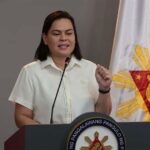The EDSA People Power Revolution in the Philippines is one of the most notable nonviolent revolutions in history. The event occurred from February 22-25, 1986 and culminated in the toppling of dictator Ferdinand Marcos and the reestablishment of democracy in the Philippines. These are 10 important facts regarding this eventful phenomenon:
1. Mass Public Involvement: Millions of Filipinos marched along Epifanio de los Santos Avenue (EDSA) in Metro Manila, calling for the end of Marcos’ 20-year regime.
2. Nonviolent Protest: The revolution is renowned for being peaceful, as citizens, nuns, priests, and soldiers united without taking up arms.
3. Corazon Aquino’s Vocation: Corazon Aquino, the wife of murdered opposition leader Benigno “Ninoy” Aquino Jr., emerged as the movement’s symbol and subsequently the nation’s first female president.
4. International Impact: The movement spawned non-violent revolutions in other nations, such as those in Eastern Europe and Latin America.
5. Military Defection: Top military officials, such as Defense Minister Juan Ponce Enrile and General Fidel Ramos, broke away from Marcos, speeding up his collapse.
6. Influence of the Church: The Catholic Church, under Cardinal Jaime Sin, had a significant influence by rallying Filipinos on the radio and through moral authority.
7. The Role of Radio Veritas: Independent station Radio Veritas reported live and rallied citizens to shield major military officials who were going against Marcos.
8. Marcos Leaves: Marcos and his family departed for Hawaii on February 25, bringing a close to decades of Marcos’ dictatorship.
9. Legacy of Democracy: The revolution saw the creation of a new democratic constitution, protecting civil liberties and restricting presidential powers.
10. Annual Commemoration: February 25 is commemorated as EDSA People Power Revolution Anniversary, a national holiday in the Philippines.
The revolution is a symbol of unity, courage, and the power of peaceful struggle, demonstrating that ordinary people are capable of altering the course of their country.









